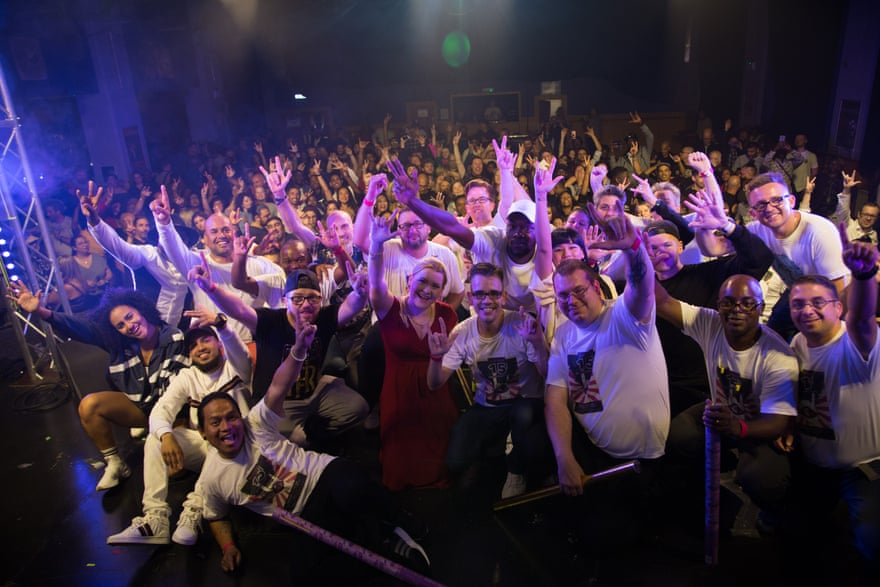In 2003, Troi Lee was queueing for a club with a group of friends when he noticed that others were being let in ahead of them. He approached security to ask what was going on, and was told: “You lot are deaf, you aren’t coming in.”
Lee had never before experienced discrimination, despite having been a regular raver for a decade. He channelled his anger into setting up the UK’s first deaf rave, to “avoid all that nonsense”.
Fast-forward nearly 20 years and deaf rave has gone from being a niche event to the star attraction at the first Edinburgh deaf festival, which kicks off on Friday.
“People do ask me what’s the difference – our deaf community is inside the place, the music is loud as fuck and we do turn up the bass a bit more. It’s a rave with everybody happy, high as a kite without taking drugs,” he says.
The rave will have laser lights, deaf DJs and British Sign Language (BSL) performers. Lee says the event is targeted at people who have some hearing, but completely deaf people can enjoy the visceral experience of the bass vibrations and performers emceeing and rapping in BSL, with lyrics that tap into deaf culture. “There aren’t many deaf role models in the music industry,” Lee says.

He has been inundated with bookings this summer, including for the Commonwealth Games and at All Points East festival in east London, which he believes reflects changing attitudes towards accessibility and inclusion.
Philip Gerrard, the chief executive of Deaf Action and one of the organisers of the festival, agrees. “We’ve seen a huge shift in societal attitudes and increased deaf awareness recently.”
He says access for deaf people to Edinburgh’s festivals has historically been “patchy and uncoordinated”, but the focus on promoting deaf culture in the Scottish government’s 2015 BSL Act paved the way for “a week of deaf culturally specific events alongside an accessible festival season”.
He says 2022 has been “an incredibly exciting year for deaf culture”, with Troy Kotsur becoming the first deaf man to win an Oscar, Rose Ayling-Ellis winning Strictly Come Dancing, and Tasha Ghouri becoming the first deaf Love Island contestant, all of which he says are “normalising sign languages, deaf voices and hearing devices”.
But he says that for progress to continue, there needs to be more investment in creating opportunities for deaf performers.

Fringe venues say they would like to work more closely with the deaf festival in future, and their programming this year reflects growing interest in deaf culture. The Pleasance is putting on its first entirely BSL show, Made in Britain, about the south Asian deaf community.
Its creator, Rinkoo Barpaga, says he started his career in the US because he found being Asian and deaf was “a door I just [couldn’t] break through” in the UK, which he feels lags behind some other countries in recognising deaf creativity.
He says that at the fringe, out of more than 3,000 shows, he found only 100 that were accessible, because “theatre is very behind on adding captions for accessibility and offering interpreters”.
Nadia Nadarajah, a BSL actor who has helped to shape the deaf festival and is starring in several events, says it is important that work reaches hearing people as well as the deaf community, to prevent it from becoming “insular” and to tackle the “ableism that is still rampant online”.
She says: “Our community has a rich heritage, we have so many stories to tell, and we want to share them with everyone. I’d love to see a time where it’s normal for hearing audiences to attend performances by deaf artists.”
Stay connected with us on social media platform for instant update click here to join our Twitter, & Facebook
We are now on Telegram. Click here to join our channel (@TechiUpdate) and stay updated with the latest Technology headlines.
For all the latest Music News Click Here
